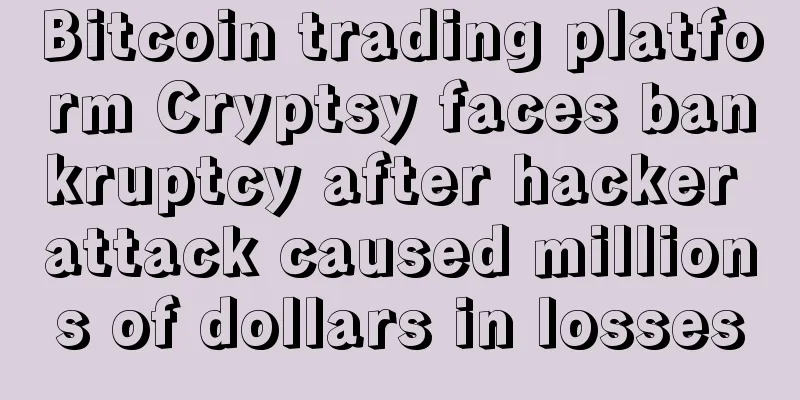Japan will regulate Bitcoin. Huobi.com recommends regulators to observe

|
Recently, the Japanese government will impose legal controls on virtual currencies such as Bitcoin in order to prevent them from being used for money laundering and raising funds for terrorist organizations. At the same time, China's authoritative regulatory magazine Tsinghua Financial Review published a Bitcoin policy proposal entitled "Current Bitcoin Industry Development Status and Policy Research". This is the first time that an article on Bitcoin policy proposals has been published in a more influential magazine in China. The author is Li Lin, the founder of Huobi.com, China's largest Bitcoin trading platform. Based on the decentralized, anonymous, and extremely low-cost features of the Bitcoin network, Bitcoin holders can send and receive Bitcoins through any computer connected to the Internet. While this technological advantage has brought changes to the global payment system, it also poses the risk of being used illegally and abused by criminal organizations, posing a huge challenge to government crime tracking. In the past few months, there have been many cases of hackers DD0S attacking large websites to extort Bitcoins around the world. The Tokyo Metropolitan Police Department will study measures such as introducing a registration system or a licensing system for exchanges that exchange virtual currencies and cash. The Ministry of Finance, the Financial Services Agency, the National Police Agency and other relevant ministries and agencies will coordinate and do not rule out improving the law at the regular Diet next year. The main consideration will be to expand the scope of application of the "Criminal Proceeds Transfer Prevention Law" for combating money laundering, but it is also possible to amend the "Financial Products and Exchange Law" for protecting investors and establishing a fair market. Globally, regulators in various countries who have responded positively to the development of the Bitcoin industry have basically defined Bitcoin as an asset or commodity. When formulating specific rules, they draw on the relatively mature regulatory system of the traditional financial industry. At this stage, mainstream European and American countries regard Bitcoin as an investment product or asset, and gradually begin to implement legal supervision and taxation; a small number of countries recognize the currency status of Bitcoin; and very few countries prohibit the use of Bitcoin. For example, the New York State Department of Financial Services (NYDFS) has released the final version of the digital currency company regulatory framework BitLicense, which is the world's first formal clear regulatory law for the digital currency industry. The European Banking Authority (EBA) asked EU banks in July 2014 to stay away from virtual currency transactions such as Bitcoin until the relevant regulatory bill is introduced. Although the Chinese government has not yet made a positive statement on Bitcoin, Huobi.com, as China's largest Bitcoin trading platform, has already been on track in building self-discipline and compliance for Bitcoin. On the business side, Huobi has deeply considered the particularity of Bitcoin assets and has established a real-name authentication management mechanism (KYC for short) and recharge and withdrawal management (AML for short). It has cooperated with professional AML/KYC institutions at home and abroad to verify the authenticity of user certificates and user identities, and to ensure the security and legality of the source/flow of funds to the greatest extent. While striving to protect the legitimate rights and interests of every user, it cooperates with the judicial department to deal with any illegal behavior and assets. Huobi founder Li Lin published an article on Bitcoin policy recommendations in Tsinghua University Internet Finance Magazine, proposing to distinguish Bitcoin and Bitcoin blockchain technology in the scope of regulations, to include core areas such as digital asset transactions and digital asset storage management into the existing mature regulatory system; to fully study and follow up on US regulation and aftereffects in the legislative process; and to encourage and support Bitcoin technology research and innovation at the academic level. Tsinghua Financial Review is supervised by the Ministry of Education of the People's Republic of China, sponsored by Tsinghua University, and hosted by Tsinghua University PBC School of Finance. Its readers are middle and senior leaders of policy-making departments such as the National Development and Reform Commission, the Ministry of Finance, the central bank, and financial regulatory agencies. It is considered one of the most influential financial magazines in China. |
<<: Australia may remove GST on Bitcoin
>>: Greek crisis leads to revival of interest in Bitcoin
Recommend
How to tell fortune by face reading
The fortune of a person’s life can be seen from h...
A diagram of fortune-telling based on the nose bridge of a woman born with a rich destiny
How to interpret the fortune-telling diagram of a...
Is it good for a woman to have a mole in the middle of her nose?
Is it good for a woman to have a mole in the midd...
The contradiction behind the airdrop review system: a dilemma between structure and interests?
Whether it is an individual who focuses on experi...
What does Tian Tong mean in the life palace?
The Life Palace is an important part of our body ...
Is it good to have big or small eyes?
The so-called uneven eyes are also called hermaph...
Your feet reveal your social status
Your feet reveal your social status The thickness...
Hackers demand $6 million in Bitcoin for Game of Thrones spoilers
The anonymity of Bitcoin, a blockchain-backed cry...
What are the facial features of unfilial children who are disrespectful to their parents?
Children are the apple of their parents' eyes...
What does a man with a mole on the right side of his face look like? What does a mole on a man’s right cheek mean?
Not only do moles have different meanings in diff...
Siberians use cryptocurrency miners to keep warm
Crazy Commentary : Two entrepreneurs in Irkutsk, ...
Bitcoin on the Streets: 25 Paris Stores Ready to Accept Bitcoin Payments
According to Huobi Blockchain Research Center, si...
Analysis of the facial features of a promiscuous woman: Are women with peach blossom eyes promiscuous?
A person's feelings are also a big part of li...
What are your predictions for the market’s future development?
With the recent sharp drop in currency prices and...
Palmistry with innate success information
Palmistry with innate success information 1. Peop...









